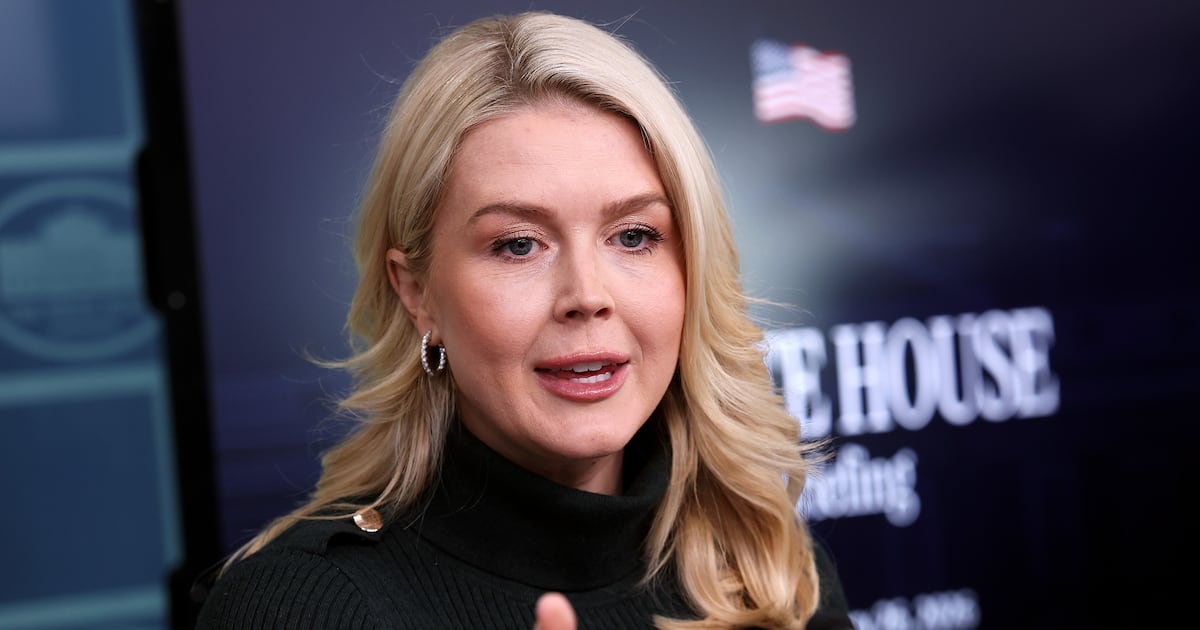The contentious Senate hearing for secretary of defense nominee Chuck Hagel divided starkly along partisan lines, with Republicans attacking their former colleague with the pitchfork zeal of heretic hunters.

Hagel’s calm recitation of consensus catechism on issues ranging from Iran to Israel to nuclear weapons didn’t seem to make any impression on his conservative critics.
This was personal. John McCain repeatedly interrupted his “old friend” and fellow Vietnam vet with palpable anger, his fury directed at Hagel’s opposition to the Iraq War and the 2007 troop surge. The core offense appeared to be Hagel’s contention that the invasion of Iraq was the worst foreign policy “disaster” since Vietnam—a parallel that infuriates McCain.
Oklahoma Sen. Jim Inhofe, a Republican, reinforced his reputation as possibly the worst U.S. senator with bear-baiting questions like this: “Why do you think that the Iranian Foreign Ministry so strongly supports your nomination for secretary of defense?”
Alabama Sen. Jeff Sessions doggedly focused on a report by the anti-nuke group Global Zero, which advocates the elimination of nuclear weapons. The report was co-authored by Hagel, four generals, and a number of ambassadors. The organization itself has hundreds of international leaders who have signed on to its recommendations, including Reagan’s secretary of defense Frank Carlucci, Carter national security adviser Zbignew Brezinksi, 9/11 Commission co-chair Lee Hamilton, and Gen. Anthony Zinni. Sessions and other Republican senators kept cherry-picking phrases from the report and ignoring substantive subtlety, despite Hagel’s repeated assurance and demonstrated record in opposing unilateral disarmament and support for modernizing the U.S. nuclear program. This clarification by the authors might help calm any genuine concerns, if they exist.
It made me wonder what Sessions would have said to Ronald Reagan, who advocated for nuclear disarmament more than 150 times, according to his aide Martin Anderson, in statements like this: “I believe we’ve come to the point that we must go at the matter of realistically reducing … if not totally eliminating, nuclear weapons—the threat to the world.”
This is not an ironic aside so much as it cuts to the core controversy about the Hagel nomination.
A Democratic President nominating a Republican to his cabinet is usually seen as bipartisan outreach. But not this time. The reason, I think, is threefold.
First, it reflects the polarization afflicting the Republican party and its intolerance of dissent. Hagel is a small-government conservative but a committed internationalist who is wary of unilateral American overextension, views that extend from his experience as a twice-wounded enlisted infantryman in Vietnam.
Second, it reflects the tortured legacy of the Iraq War and the contradictions it creates for conservatives who feel compelled to defend that war of choice, predicated on flawed intelligence presented to the American people. Hagel earned the enduring anger of the neo-conservative crowd by openly criticizing the Bush administration for its prosecution of the Iraq War and subsequently opposing the surge. Defenders of the Bush administration now often try to delink the decision to invade from the decision to double down with the surge as a way of reclaiming the high ground. It is now clear that Hagel was right at least on this count: the invasion of Iraq was an ideologically driven overreach that proved a costly distraction from Afghanistan in terms of both blood and treasure while further destabilizing the region. History, as Hagel noted, will be the ultimate judge.
Third, it reflects the deep animus that still exists for President Obama on the part of some conservatives—so much so that any Republican who consents to serve with him is seen as a traitor to the tribe, a dynamic also seen in the GOP’s primary rejection of Utah governor and former Obama China ambassador Jon Huntsman, despite being arguably the most fiscally conservative candidate in the 2012 pack. By consenting to serve with President Obama—and therefore creating bipartisan cover for the Democrat’s defense strategy—Hagel has committed an unpardonable sin.
For conservative partisans, Hagel is now the embodiment of all these irritants. The Republican senators’ persistent disrespect for their former colleague of 12 years was striking and ugly, setting a record for interruptions.
But all this partisan posturing only obscures what Hagel actually said in the hearings. So for the record and for the reader, it might be useful to present Hagel’s stated opinions on some of the key issues of the day:
Iran: “I am fully committed to the president’s goal of preventing Iran from obtaining a nuclear weapon, and, as I’ve said in the past, all options must be on the table to achieve that goal. My policy is one of prevention, and not one of containment.”
Afghanistan: “There should be only two functions for U.S. troops that remain in Afghanistan after 2014: counterterrorism—particularly to target al Qaeda and its affiliates—and training and advising Afghan forces.”
Israel: “I will ensure our friend and ally Israel maintains its qualitative military edge in the region and will continue to support systems like Iron Dome, which is today saving Israeli lives from terrorist rocket attacks.”
Nuclear weapons: “While we pursue the reductions in our deployed stockpiles and launchers consistent with the New START Treaty, I am committed to maintaining a modern, strong, safe, ready, and effective nuclear arsenal. America’s nuclear deterrent over the last 65 years has played a central role in ensuring global security and the avoidance of a World War III.”
U.S. military posture: “We will not hesitate to use the full force of the United States military in defense of our security. But we must also be smart, and more importantly wise, in how we employ all of our nation’s great power … While we will not hesitate to act unilaterally when necessary, it is essential that we work closely with our allies and partners to enhance America’s influence and security—as well as global security.”
These statements are neither radical nor weak-kneed, as Republican questions would lead you to believe.
Instead, they are squarely in the mainstream of American foreign policy.
Moreover, the Hagel inquisition was so preoccupied with partisan opposition research and repeated gotcha questions, that other critically important issues–cyber-warfare; Al Qaeda in North Africa; military suicides; the integration of openly gay soldiers and the new role of women in combat–did not get the attention they need and deserve, despite Hagel’s best attempts.
The deep looming sequestration cuts came up primarily in the context of senators from both parties trying to defend appropriations that impact their states. As I’ve often noted, fiscal conservatives sometimes get amnesia when it comes to military spending. Hagel opposes the sequestration cuts but he has written extensively on the need to cut waste fraud and abuse from the Pentagon, and as a successful businessman, he might be well positioned to effect that change in times of deep debt.
Defeating Chuck Hagel’s nomination–or destroying his reputation through 1,000 cuts–seems to be a priority for the GOP at this particular post-election juncture. The fact that they are turning on one of their own only adds to their desire to make an example of him. Bipartisanship is in danger of becoming a partisan virtue. This dynamic has the unintended effect of making President Obama look reasonable by comparison.
As Hagel said at the outset of his conformation hearing, “No one individual vote, quote, or statement defines me, my beliefs, or my record.” It is the cumulative total of his life experience that recommends him for this position. He is the first enlisted combat Veteran and Vietnam Veteran to be nominated for Secretary of Defense. He is a former director of Veterans Affairs under President Ronald Reagan with a demonstrated concern for his fellow veterans returning from war at a time when others were turning away. He is a successful self-made businessman with executive experience and budget oversight. He is a Republican senator who was praised by Mitch McConnell as someone who “has earned the respect of his colleagues and risen to national prominence as a clear voice on foreign policy and national security.”
There is a lifetime of credibility in Hagel’s claim to always ask this fundamental question in the Senate: “Is our policy worthy of our troops and their families and the sacrifices we ask them to make?” It is precisely the right perspective for a Secretary of Defense. And it is pathetic that this nomination has proven so contentious and occasionally vicious, driven by considerations other than qualification for the office.
Today’s Hagel interrogation is just the latest sign of the persistent sickness in Washington that elevates partisanship over patriotism and tries to punish those who walk an independent path.






